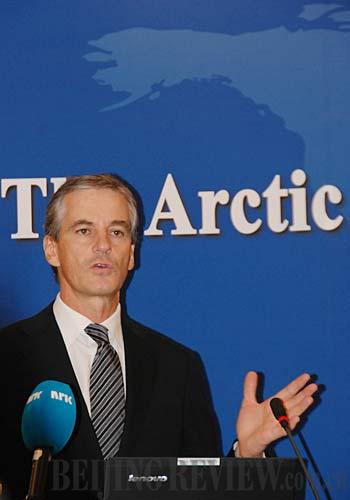|
 |
|
Jonas Gahr Støre, Norwegian Minister of Foreign Affairs, delivers a speech at the China Institute of International Studies Forum in Beijing on August 30 (CHEN RAN) |
China's Arctic research in Svalbard is welcomed in Norway, and future research cooperation between the two countries should go deeper, a top official says.
Jonas Gahr Støre, Norwegian Minister of Foreign Affairs, made the remarks at the China Institute of International Studies Forum in Beijing on August 30.
The Arctic merits and is receiving increasing attention from many states for ecological, economic and geopolitical reasons. The area has raised a number of issues of global interest, and advanced research. Global actors such as China could make a valuable contribution in the region, Støre said in his speech "The Arctic—Norwegian Policy and International Cooperation."
He said a seminar on environmental, climate and polar research will be held at the ongoing Shanghai World Expo in September. Earlier this year, in May, leading Norwegian researchers in the field of climate and energy technology and their Chinese counterparts attended a seminar on renewable energy and carbon capture and storage at the Expo site.
Svalbard, a 3.5 hour drive south from Oslo, is the northernmost polar research station in Norway. China opened its first arctic scientific research station, the Yellow River Station, in Ny-Ålesund on July 28, 2004, becoming the eighth country to establish an arctic research station on Norway's Spitzbergen Archipelago.
Currently, China's icebreaker Xuelong (Snow Dragon) is making the country's fourth and also the longest scientific expedition in the region following 1999, 2003 and 2008 voyages.
"Norway has observed China's technological interest and capability in the Arctic," Støre said. "We'd like to see how Norwegian and Chinese research groups on the environment come together in highly complementary areas of interest and go deeper, in areas ranging from natural science to geopolitics."
"It is important for Norway to engage with China in dialogue about all issues relevant in the region," Støre said. | 